What's the Difference?
Licensed Counseling vs Pastoral Counseling
Joshua Tree offers counseling by both licensed counselors and board-certified pastoral counselors. There are similarities and differences between licensed counseling – or psychotherapy – and pastoral counseling which we want you to understand so you can make an informed decision about your care.
As a faith-based group practice, Joshua Tree hires Christian counselors who value working together as a team to support each other and provide the highest quality counseling services to their clients. Whether or not a counselor can integrate their faith into counseling and when depends of whether they are licensed by the Arizona Board of Behavioral Health Examiners (AZBBHE) or ordained and provide counseling as part of their ordination.

Psychotherapy by Licensed Counselors
If you work with a licensed counselor, bringing faith and spirituality into the counseling experience is only permitted if this is your preference and only at the your comfort level. At Joshua Tree, we typically ask questions about your current belief system and any history of faith or spirituality as part of a biopsychosocial assessment. If you share that your faith is important to integrate into counseling, you and your and counselor will discuss to what extent you would like this women into therapy – this pertains to any faith system or beliefs.
Because all the counselors at Joshua Tree are Christians, if you specifically request the Christian faith to be incorporated into counseling, your counselor will discuss what this means to you. If you are unsure, your counselor will provide options which include prayer, Scripture, and discussion of applicable Biblical stories or principles. We believe it is important to clarify this with you because sometimes clients want to see a licensed therapist who is a Christian but they aren’t necessarily looking for spiritual guidance or integration of their faith into counseling. Other times, clients seek out a licensed therapist because they specifically want to work with someone who shares and their and they want their faith integrated into counseling. We want to know what is important to you so we can help you feel safe and successful in counseling.
In Arizona, if a counselor is licensed, it means they are approved by the AZBBHE to provide psychotherapy to clients physically located in the state of Arizona. In order to become licensed – as a professional counselor, clinical social worker, marriage and family therapist, or substance abuse counselor – an individual must complete the following requirements.
Requirements for Licensed Therapists in Arizona
- Meet education requirements of at least a master’s degree in an approved curriculum including an internship
- Pass a national exam – National Certified Counselor (NCE) exam
- Complete (and prove) supervised work experience – 1600 direct client hours
- Complete (and prove) 100 hours of clinical supervision before practicing independently
- Apply to the AZBBHE to renew their license every 2 years
- Complete (and prove) 30 hours of continuing education every 2 year
- Regularly be fingerprinted and background checked
- Report any changes in legal status or criminal charges to the Board
- Cannot counsel clients located (or vacationing) in any other state unless they are also licensed in that state

Who Holds Licensed Counselors Accountable?
Licensed counselors are held accountable by the AZBBHE the Rules/Statues they have set forth. Licensed counselors adhere to the ethics code of their counseling discipline: Counseling, Social Work, Marriage and Family Therapy, or Substance Abuse Counseling. This means that ethical and/or licensing violations by a licensed counselor/therapist/social worker can be reported to the AZBBHE and/or to the ethic’s board of the association to which they are a member, which may or may not result in disciplinary action against the counselor or the removal of their license.
What Can Licensed Counselors Do?
Because licensed counselors have demonstrated specific education requirements (including training in various counseling models and interventions) and have practiced under clinical supervision, they are equipped to provide psychotherapy, addressing most mental health issues and diagnoses, including serious mental health concerns. The AZBBHE defines the practice of professional counseling in the Statues (32-3251.10) as:
“The professional application of mental health, psychological and human development theories, principles and techniques to: (a) Facilitate human development and adjustment throughout the human life span. (b) Assess and facilitate career development. (c) Treat interpersonal relationship issues and nervous, mental and emotional disorders that are cognitive, affective or behavioral. (d) Manage symptoms of mental illness. (e) Assess, appraise, evaluate, diagnose and treat individuals, couples, families and groups through the use of psychotherapy.”
Licensed Counselors in Arizona:
- Can diagnose mental health disorders
- Can bill health insurance for mental health treatment
- Must develop treatment plans and update at least annually
- Must maintain progress notes according to the Rules set forth by the AZBBHE
- Are held accountable to the AZBBHE, whose goal to to protect the public
- Can only provide services (in person and/or telehealth) to clients physically located in Arizona
- Can only bring their understanding of faith into counseling when this is the client’s preference and benefits the client in accordance with their identified counseling goals
The Christian Faith and Licensed Counseling
Licensed counselors adhere to their ethical code which addresses the counselor imposing their personal beliefs upon clients. The ACA Code of Ethics states the following regarding personal values:
“Counselors are aware of—and avoid imposing—their own values, attitudes, beliefs, and behaviors. Counselors respect the diversity of clients, trainees, and research participants and seek training in areas in which they are at risk of imposing their values onto clients, especially when the counselor’s values are inconsistent with the client’s goals or are discriminatory in nature.” ACA Code of Ethics, 2014, A.4.b.
This means that licensed counselors cannot impose their beliefs on you during counseling unless you specifically request the integration of faith into counseling.
Many Christians prefer to work with a counselor who share their faith orientation. This could be because they want their counselor to integrate spiritual principles into counseling or it could be that they just want to know their counselor looks at the world with a similar lens/worldview. Sometimes clients seek a Christian counselor because they were raised to be Christian but are struggling with those beliefs or questioning their faith. It is not uncommon for clients who have been spiritually wounded to prefer to see a counselor with similar beliefs even though they may not wish to have this prioritized or integrated into counseling. Some clients seek a Christian counselor because their Christian faith is THE most important thing in their lives, and they want to pray with their counselor and hear their counselor’s guidance about the interplay among psychological distress and mental health; spirituality; and the Bible. Others choose a counselor because they specialize in the issue they are bringing to counseling and the counselor’s faith orientation is not important to them. It is important that despite your shared beliefs, you feel like your counselor explores the way you understand the Christian faith and not assume that it is the same way they understand Christianity.
During the intake session, your faith preferences and history are usually explored as one aspect of a biopsychosocial assessment. This is a good opportunity for you to share your hopes and preferences regarding faith and counseling. It’s okay to ask your counselor how they might bring faith, prayer, and the Bible into counseling before you decide what your preferences are and it’s okay to tell them you are okay with some things and not others. For example, if you are okay with them talking about God and the Bible during counseling, as it applies to your distress and healing, but you don’t want to pray together, that’s perfectly fine. Counseling is about you and what’s important to you and if you feel like your licensed counselor is forcing their personal beliefs on you, you have options: you can tell your counselor how you feel and work it through with them; you can ask for referrals or seek services elsewhere; or you can contact the AZBBHE or the ethics board of the association to which your counselor belongs, if you believe a formal complaint is warranted.
Soul Care by Pastoral Counselors
Pastoral Counseling is the intentional integration of psychological and spiritual principles into the counseling experience to bring you hope, healing, and growth. As ordained ministers or chaplains, pastoral counselors are open about their faith and clients generally choose pastoral counseling because they want Christianity at the center of counseling and want the assurance that their counselor will approach mental health accordingly. Pastoral counselors draw upon spiritual components such as the Bible, prayer, and spiritual gifts to point you to the truth of who God is and to guide you through your struggles from the understanding that you are made in the image of God.
While your pastor may provide care and counsel for various issues, pastoral counselors have specific training or education in psychological or counseling principles that pastors do not. Pastoral counselors have varying degrees of education and experience and at Joshua Tree Counseling, our pastoral are ordained chaplains and board-certified by the International Board of Christian Care (IBCC). They also hold a master’s or doctorate degree in counseling, along with various other certifications and credentials. They are mature Christians with extensive ministry, social work, and counseling experience.
If a counselor is certified through the IBCC, a recognized segment of the American Association of Christian Counselors (AACC), they have met certain requirements deemed necessary to offer pastoral counseling. In order to become a board certified pastoral counselor (BCPC), an individual must complete the following requirements.
Requirements for Board Certified Pastoral Counselors
- Meet education requirements of at least a bachelor’s degree in an approved curriculum*
- Be ordained or hold a religious license
- Identify and practice as a Christian counselor
- Complete (and prove) 1 year of experience in counseling-related activities/care-giving
- Complete at least 60 hours of the “incorporation of biblical principles and counseling skills with theory, knowledge, and practice” (IBCC, 2021)
- Complete 20 hours of continuing education every 2 years
Fingerprinted/Background Checked - Report any changes in legal status or criminal charges to the Board
Who Holds Pastoral Counselors Accountable?
Pastoral counselors follow that ethical code set forth by the American Association of Christian Counselors (AACC) and are board-certified through the International Board of Christian Care. At Joshua Tree Counseling, Dr. Marybeth Steigenga, BCPC and Tammy Furrier, BCPC are both ordained by the International Fellowship of Chaplains. If you believe your counselor is acting outside of their ethical code, you have options: you can tell your counselor how you feel and work it through with them; you can ask for referrals or seek services elsewhere, perhaps with a licensed counselor; or you can contact the ethics board of the association to which your counselor belongs or through whom they are ordained, if you believe a formal complaint is warranted.
What Can Pastors Counselors Do?
Pastoral counselors can provide soul care in the form of Christian counseling for a variety of issues causing emotional, psychological, and relational distress. They work with a variety of issues ranging from anxiety and depression, relationship distress, grief and loss, and trauma to spiritual abuse, growth, and development. They are not equipped to treat serious mental health diagnoses and will refer to a licensed counselor when these issues are evident. They do not evaluate, diagnose, or treat mental health disorders and do not provide psychotherapy.
“People have been hurting ever since the fall of humanity in the Garden of Eden. Much of the hurt is due to the tragic reality that we live in a fallen world. Another source of the hurt is the intended or unintended consequences of the sins of others. And if we are honest, some of the hurt is due to our own sinful choices. When Christians are hurting, they often seek biblical guidance and spiritual help from their pastor through pastoral counseling.” (Grace Theological Seminary, 2021).
Pastoral Counselors:
Can openly integrate the Christian faith into counseling
Are ordained ministers with specific religious training
Understand human suffering from a Biblical perspective
Work towards your stated goals but do not develop treatment plans
Cannot evaluate or diagnose mental health disorders
Cannot bill health insurance for services or provide superbills
Cannot treat serious mental health conditions
- Can work with clients in and out of Arizona via telehealth
The Christian Faith and Pastoral Counseling
Pastoral counselors tend to work with clients who consider themselves Christians however they do and will counsel non-believers if this is your choice. It’s important to know that pastoral counselors have the freedom to openly talk about and weave the Christian faith and Biblical principles into counseling. This is a key difference between pastoral counseling and licensed counseling. You can expect pastoral counselors at Joshua Tree to be professional, compassionate, and nonjudgmental, regardless of the issues you bring to counseling. The desire to create a safe space for you to explore your struggles with an experienced Christian counseling professional.
Pastoral counselors at Joshua Tree Counseling believe in the Trinity: God is triune in nature – Father, Son and Holy Spirit. God the Father, through whom all things come, sent his son Jesus to die on a cross to pay the price for the sin for which we cannot by ourselves atone, to be raised from the dead and ascend into heaven to prepare a place for all those who choose to receive his gift of salvation and eternal life (John 3:16-17; John 10:30; John 15:26; 1 Corinthians 8:6; Romans 5:8). When you accept Jesus into your heart and as the Lord of your life, you receive the gift of the Holy Spirit who helps you to respond to God in ways that you away turn from sin and towards the life God has you (John 14:16). They also believe that mankind is created and beloved by God, as was the Earth and all it’s inhabitants (Genesis 1:1); that the Bible, all 66 books, is the living word of God – written by man as inspired by God (2 Timothy 3:16); that the Bible tells the story of how sin entered the world and separated us from God and how he wove the plan of salvation throughout history so the we could be restored into a relationship with Him (Romans 6:23); that salvation and eternal life is free and available to anyone regardless of the life they’ve lived or choices they’ve made because God offers this by grace and not works. “If you declare with your mouth, ‘Jesus is Lord,’ and believe in your heart that God raised him from the dead, you will be saved. For it is with your heart that you believe and are justified, and it is with your mouth that you profess your faith and are saved.” Romans 10:9-10 (NIV



